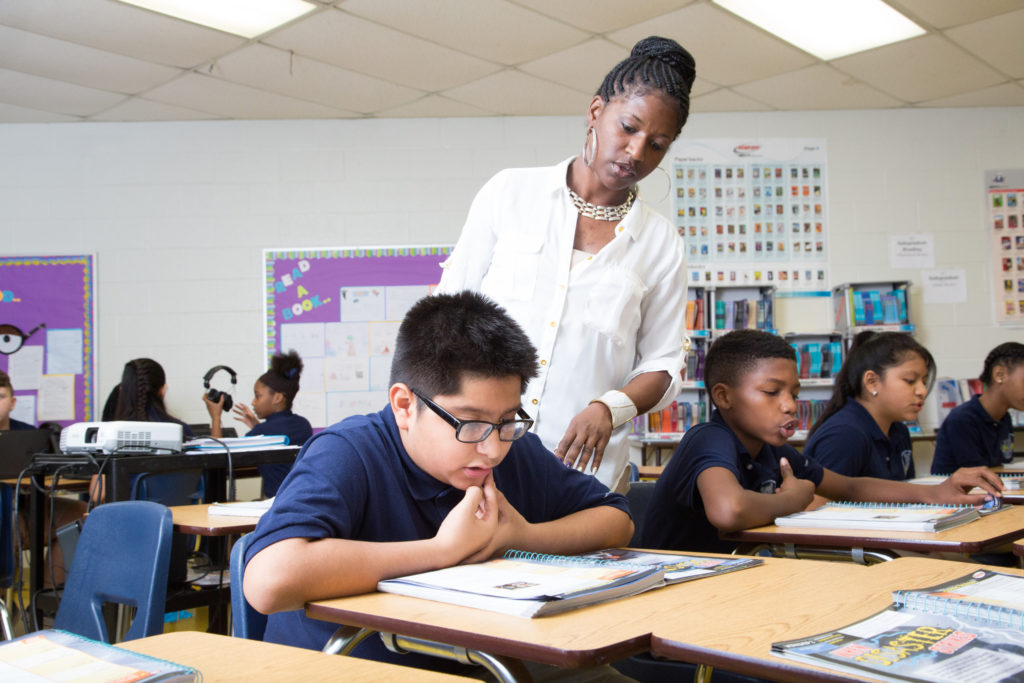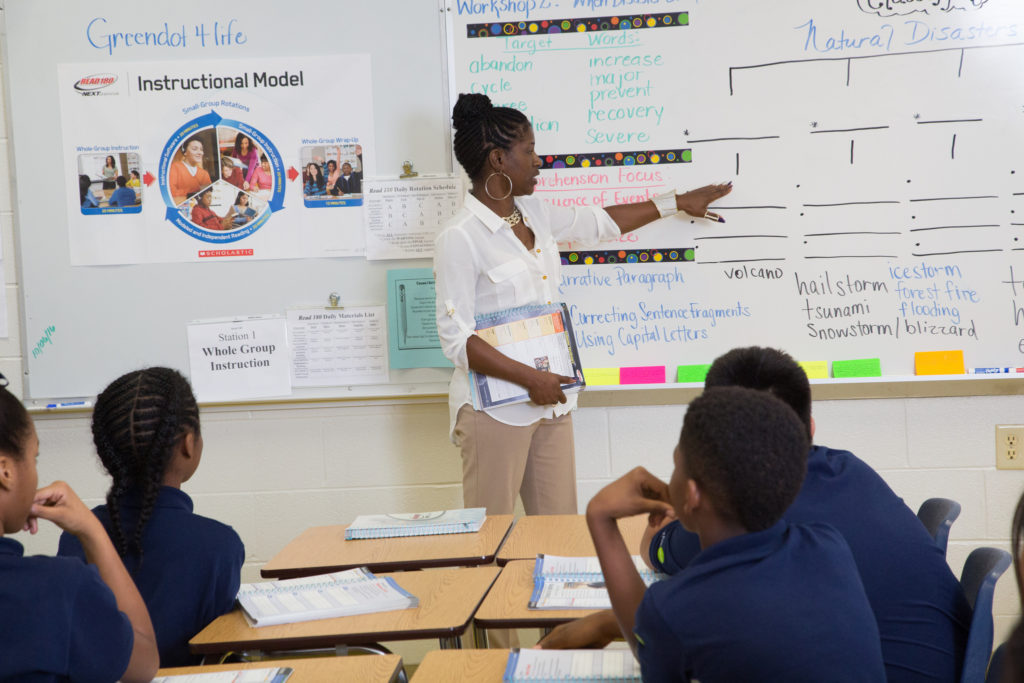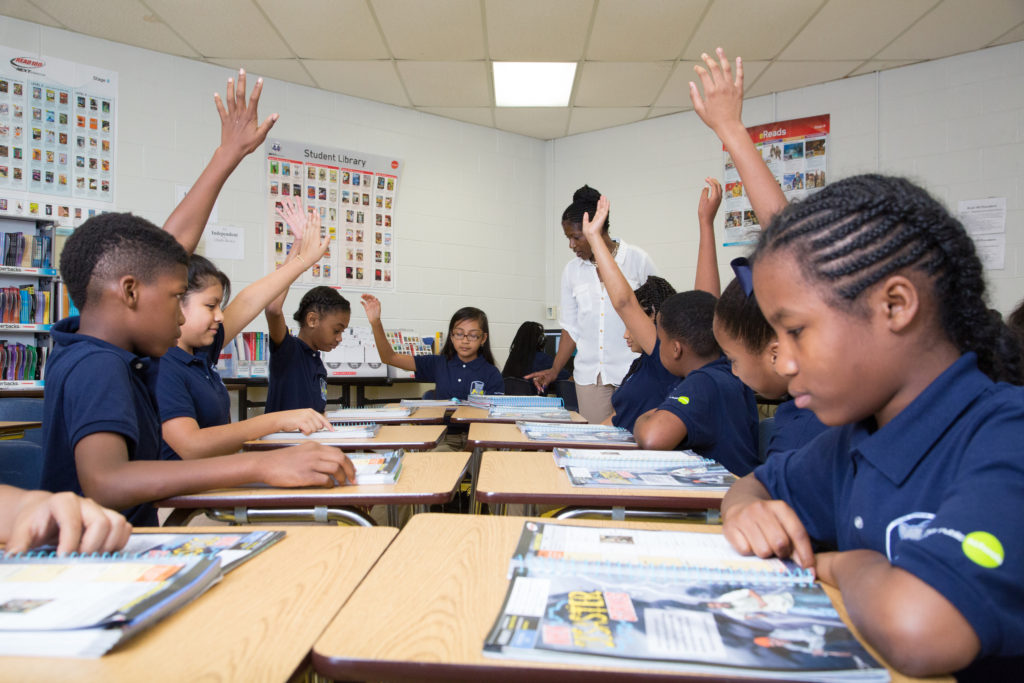Literacy Leaps Ahead at Kirby

“We don’t always know where students are coming from, they may or may not have the same background as us, but it’s our job to understand them.” – Monifa Roberts
Monifa Roberts is a Literacy Enrichment Teacher at Kirby Middle School in Memphis, TN. Though a veteran public educator with over a decade of teaching experience, Ms. Roberts cites a recent experience during her professional development with Green Dot Public Schools as one of the most influential in her career: “For one of our advisory periods, we were given a poem to read and reflect on, and it touched me because it made me think back to being in school myself and seeing kids get singled out by teachers.”
The poem that touched Ms. Roberts is Joshua T. Dickerson’s “Cause I Ain’t Got a Pencil.” Dickerson, an Atlanta-based educator and community activist, who wrote it as a reminder for those working in education not to forget or discount the difficulties many students experience outside the walls of their classrooms.
Cause I Ain’t Got a Pencil
I woke myself up
Because we ain’t got an alarm clock
Dug in the dirty clothes basket,
Cause ain’t nobody washed my uniform
Brushed my hair and teeth in the dark,
Cause the lights ain’t on
Even got my baby sister ready,
Cause my mama wasn’t home.
Got us both to school on time,
To eat us a good breakfast.
Then when I got to class the teacher fussed
Cause I ain’t got no pencil

Ms. Roberts has come to view the poem as a guiding principle in how she interacts with her students, especially when conflicts arise. This is her first year teaching with Green Dot, and she describes being drawn to the organization because “of their hands-on approach to reaching students.”
“They really focus on finding positive ways to get kids and their parents more involved.”
Prior to coming aboard, she spent most of her career teaching K-5 Reading in the Shelby County School system. She joins a growing number of Memphis educators who have seen firsthand the remarkable impact school transformations can have, especially on students lagging behind in literacy proficiency, a topic close to her heart. On systemic reading gaps in public education, Ms. Roberts notes, “A lot of students are struggling with basic comprehension. In previous years, they’ve shied away from reading in front of others–especially their peers–so their lack of phonemic awareness gets overlooked. In a lot of places, kids in the sixth, seventh, eighth grade are reading on a first, second or third grade level.”
Literacy Enrichment
In her literacy class, Ms. Roberts is able to address students’ reading challenges in an engaging way that caters the material to a variety of learning styles.

Ms. Roberts’ literacy students start each class period as a whole group, where they recap the previous lesson and are then introduced to the current one. Next, they divide into three small groups:
- Teacher-led discussion: In the discussion group, students talk in depth about that day’s lesson and have the opportunity to work one on one with Ms. Roberts, which allows her to assess who’s mastering a concept and who might need more help from her.
- Independent reading: Independent readers practice their fundamentals by reading a book from the class’s library, all organized by Lexile measure to help students choose a good fit.
- Software-based study: At the computer station, the third group of students use educational software to explore interactive lessons that reinforce skills each is working to improve or take comprehension tests about books they have read.
Over the course of the class, each group rotates through each station, ending the session by coming together for another review with the full class.
In her first year teaching literacy enrichment at Kirby, Ms. Roberts has already seen improvements in her students’ abilities and outlooks:
“They seem more eager. They want to learn, and they love making these jumps in reading comprehension. They just need someone to give them an opportunity.”
